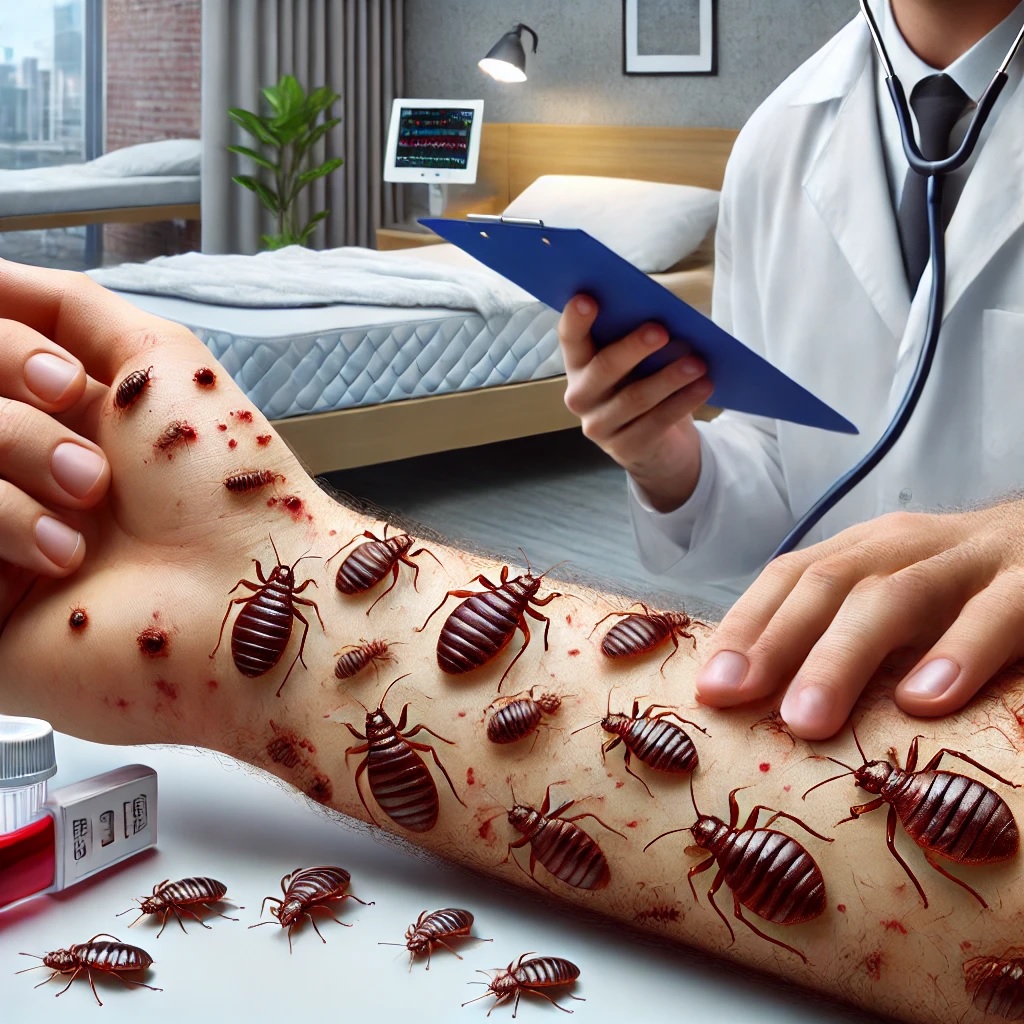If you’ve ever dealt with a bed bug infestation, you know just how irritating those bites can be. They itch, they swell, and they can drive you mad. But beyond the annoyance, you might be wondering—can bed bugs actually cause anaemia? It sounds a bit extreme, but let’s dive into what bed bugs do to your body and whether they could potentially lead to anaemia.
At ThermoPes, we get a lot of questions about bed bugs and their impact on health, so we’re here to set the record straight in a way that’s easy to understand.

How Bed Bugs Feed: What’s Really Going On?
Bed bugs aren’t just biting for the fun of it—they’re feeding on your blood. When they bite, they inject a little saliva that numbs the skin so you don’t feel a thing, and then they draw blood. It’s this process that leaves those itchy, red welts we all know too well.
What’s interesting is that a bed bug only needs to be fed once every five to ten days, but during an infestation, you could end up with several bites each night. Each bite takes a small amount of blood—so small, in fact, that a typical bite isn’t going to cause any noticeable blood loss.
But what happens if the bites keep coming, night after night?
What Is Anaemia?
Before we get into whether bed bugs can cause anaemia, let’s quickly look at what anaemia is. Anaemia occurs when your body doesn’t have enough red blood cells or haemoglobin, which your body needs to carry oxygen. The most common symptoms are fatigue, dizziness, and feeling generally weak. Iron deficiency is often to blame, but blood loss can also lead to anaemia, especially if it’s consistent over time.
So, where do bed bugs come into the picture?
Can Bed Bugs Cause Anaemia?
This is where things get a bit more interesting. A regular bed bug infestation—one where you’re getting a few bites here and there—probably isn’t going to cause anaemia in a healthy adult. The amount of blood loss from a single bed bug bite is incredibly small.
But let’s say you’re dealing with a severe infestation—we’re talking dozens or even hundreds of bites every night. Over time, that constant blood loss could potentially contribute to anaemia, especially in vulnerable people like young children, the elderly, or those with pre-existing health conditions.
I’ve worked with families who’ve been completely overwhelmed by bed bugs, especially when children are involved. Kids tend to react more to the bites, and if they’re getting bitten repeatedly, it can cause a whole lot of stress. In cases like these, it’s important to act quickly to stop the infestation before it leads to bigger health issues.
Mild vs. Severe Infestations
In mild infestations, the likelihood of anaemia is incredibly low. But in more extreme cases—where the bed bug population has exploded and bites are happening every night—it’s not impossible for anaemia to become a concern. This is especially true for babies or elderly family members who may not have the strongest immune systems or may already struggle with low iron levels.
How to Prevent Health Issues from Bed Bugs
So, what’s the best way to avoid these health risks? It all comes down to getting rid of the bed bugs before they have a chance to multiply and take over your home. Treating bed bug bites is important to stop the itching, but it’s not enough if the bugs are still hiding out in your mattress or furniture.
Treating the Bites
If you’re already dealing with bed bug bites, start by cleaning the area with mild soap and water to reduce irritation. Anti-itch creams like hydrocortisone can help soothe the bites, and oral antihistamines can ease allergic reactions. But remember, these treatments only address the symptoms—if the bed bugs are still in your home, the bites will keep coming back.
Eliminating the Bed Bugs
That’s where ThermoPes comes in. Our non-toxic heat treatment kills bed bugs at every stage of their life cycle—eggs, nymphs, and adults—without using harmful chemicals. It’s safe for your home, your family, and your pets, and it’s incredibly effective. Once the bed bugs are gone, you can rest easy knowing the bites (and the potential health risks) are gone too.
When to See a Doctor
If you or someone in your family is dealing with constant bed bug bites and starts feeling fatigued, dizzy, or unusually weak, it’s worth seeing a doctor. These could be signs of anaemia, and it’s better to catch it early. A blood test can determine if anaemia is present, and your doctor can recommend treatment options, such as iron supplements or changes in diet.
It’s also important to consult a professional if you notice that the bites aren’t healing or are becoming infected. In some cases, frequent scratching can break the skin and lead to infections, which could make things worse.
Stop Bed Bugs Before They Affect Your Health
While bed bugs probably won’t cause anaemia in most cases, the key takeaway here is that they can impact your health if left untreated—especially in extreme infestations or vulnerable individuals. The good news? You don’t have to live with them.
At ThermoPes, we understand how frustrating bed bug infestations can be, not just for your home but for your health and well-being. Our heat treatment is a safe, reliable way to completely eliminate bed bugs, so you don’t have to worry about bites, itching, or any potential health risks like anaemia.
If you’re dealing with bed bugs or just want peace of mind, give us a call. Let’s get your home—and your health—back to normal.

